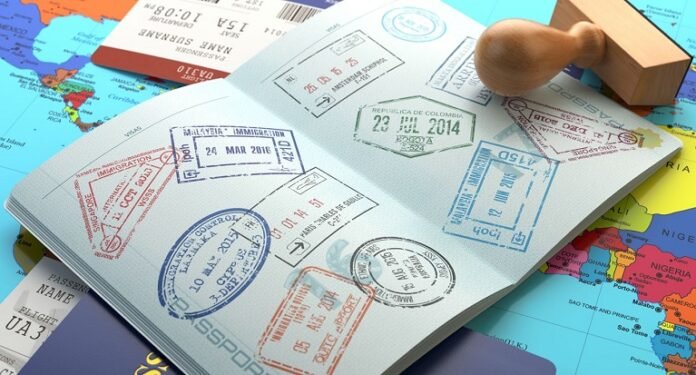If you are an Indian citizen, you must be aware of the latest changes in visa rules and requirements for Israel. Thankfully, the government has made the visa application process simpler for Indians. You’ll only need to present an entry and exit stamp, as well as a passport copy and Schengen visa if you’re a citizen of the European Union or Australia. You won’t have to submit a bank statement or a statement of funds if you already have a visa from another country. Then, you can apply for an Indian visa at Visa Application Centers in India.
PCR and rapid antigen tests must be taken within 48 hours
Indian Visa for Israel citizen requirements. This test must be negative or a COVID-19 pass must be issued. The traveler must also have received the necessary vaccinations for preventing the disease and be free from symptoms. Travelers must also have the appropriate documentation showing that they have not been exposed to the disease.
All travelers must present a negative COVID-19 test result and a proof of vaccination against the virus. PCR and rapid antigen tests must be done at least 72 hours before departure. A valid passport photo and the certificate must be shown to the immigration officer upon arrival. Visitors must also pay a fee at the airport and complete a health questionnaire. If the traveler has traveled to Israel or Poland on business or pleasure, they must have a valid passport.
In addition, traveler must fill a passenger locator form and obtain a negative R.T.-P.C.R. test 72 hours before flight departure. If the traveler is traveling with children under five, the test requirement is waived. The traveler must also complete a health declaration at the airport, download the PC-COVID app and follow the instructions on the app to stay healthy for 10 days. If they show signs of Covid, they must report to authorities.
The CDC has determined that the risk of Covid-19 is Level 3: High. Travelers from Poland must complete a Traveller Location Card to enter Poland. In addition, travelers must present proof of vaccination within 48 hours of their arrival. If the traveler has an I.V. or an MMR vaccination, a negative Covid-19 test result is still required within 72 hours of arrival. If the traveler has a valid vaccine, the traveler can self-isolate until the test results are negative. Vaccination is not mandatory, but travelers are required to present proof of vaccination before the flight.
Visitors aged 11 years and older must submit an eVisa prior to their departure. If they are fully vaccinated, they may enter with a negative P.C.R. test. Alternatively, travelers must undergo a pretest test to determine their immunity status. Those unvaccinated travelers are required to undergo a 14-day quarantine and a P.C.R. test on day five of their arrival. If their C.D.C. risk assessment for Covid-19 is Level 3: High, they may be quarantined for five days after arrival.
EVISA cannot be converted to another type of visa
A EVISA is a type of visitor visa issued by the government of the European Union. It can be converted to a variety of other visa types, including an X visa. If you are unsure of which visa type you are requiring, visit the embassy or consulate of your country of origin to learn more about conversion options. In some cases, a traveler can use an EVUS (Electronic Visa Unification System) to convert their EVISA into a different type of visa.
EVUS enrollment is required for travelers holding passports from the People’s Republic of China. This enrollment will be available starting November 29, 2016. Passport holders must enroll in EVUS to obtain a valid boarding pass when entering China. EVUS enrollment is required for B1/B2 visa holders traveling through land ports of entry. The enrollment period is four months. A person may only enroll once in the program.
EVISA cannot be extended
There are two ways to extend your EVISA for India. First, you must apply for the eVisa online. This process is fast and easy, but you cannot extend the EVISA after you have arrived in India. Second, eVisa does not require a stamp in your passport. Moreover, you do not need to visit an Indian Embassy or Consulate.
The Indian Visa for Poland citizens can be obtained through e-Visa. Since 2014, e-Visa India has become available for Polish citizens, ensuring that they do not have to deal with paper-based formalities when traveling to India. The e-Tourist Visa is ideal for tourists, visiting Indian National Parks, visiting Indian wildlife sanctuaries, participating in yoga retreats, and other short-term stays in India.
An e-Visa can be easily extended for Israeli and Polish citizens. Israeli citizens can apply online for an e-Visa. They can pay in Indian Shekel or one of the other 135 currencies accepted. The application form for an e-Visa for Israel requires accurate information, so double check the information you enter to avoid delays. Incorrect information can result in a visa denial or a lengthy delay.
e-Visas are reserved for tourism, business, and medical visits. It cannot be extended for a student or professional visa. Unlike the e-Visa, you do not have to register with a regional office before you arrive in Israel. You will be fingerprinted on arrival. The e-Visa can be valid for three entries up to 120 days, and can be renewed up to a year in advance.
EVISA not inclusive of convenience fee
Applicants who have valid visas can travel to the United States without a visa on arrival. The validity of the visa will be determined by immigration officials at the port of entry. For Poland and Israel citizens, an eVisa is not required. However, it is recommended to visit the U.S. immigration department before traveling. A valid visa from the UK or the US may be substituted for an eVisa.













